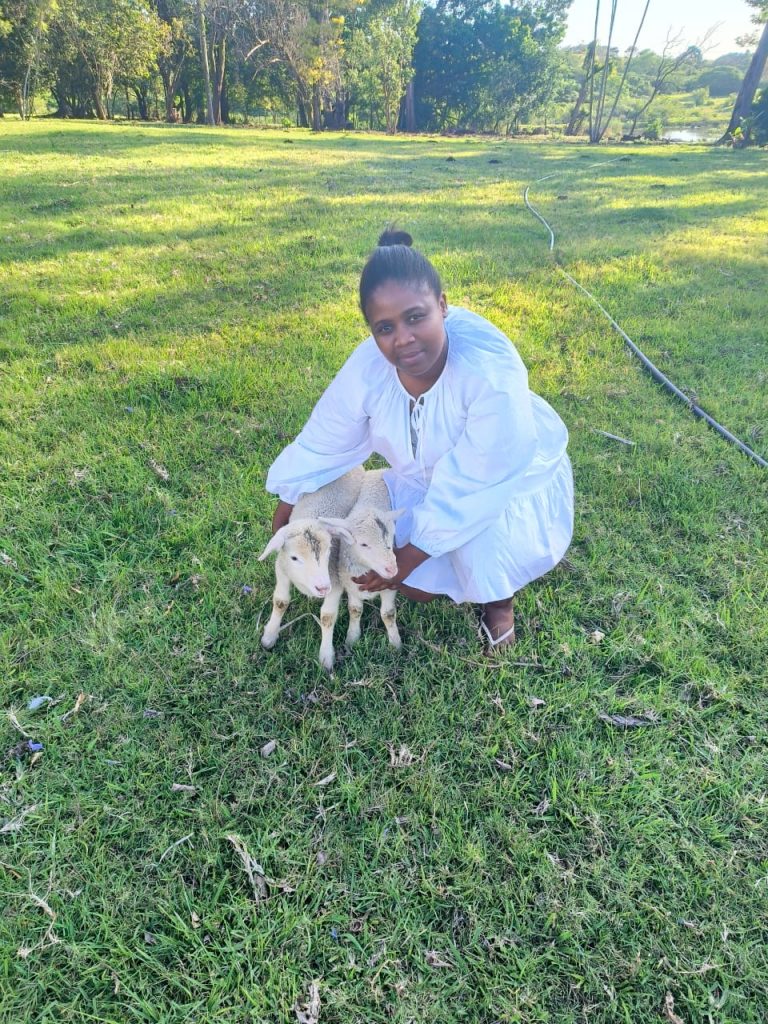For Qawekazi Fadana, true success in the commercial farming industry will come when her farmworkers can afford their own cars, and she can sit at the table “in my shorts, just like the male farmers in their shorts.”
At 37, Fadana runs Mhlelisa Farm, a thriving free-range poultry and livestock operation in Haga Haga, 70km north of East London. Her mission is to build on the farm’s commercial success while driving innovation and economic growth in the rural Wild Coast region.
Fadana is among 28 entrepreneurs and small business owners enrolled in the inaugural East London intake of the Stellenbosch Business School’s Small Business Academy (SBA). Just a few weeks into the programme, she’s already experiencing a transformative shift in her business approach.
“From the first week, when we covered organisational culture, I saw immediate positive changes,” she said. “I had staff issues, and those sessions gave me the confidence and practical advice to restructure my entire business. The results have been incredible.”
Farming is in her blood. Fadana grew up in rural Engcobo in the Eastern Cape and worked alongside her mother, the award-winning small-scale farmer Philiswa Fadana, before taking over the reins. Now, she’s using the SBA programme to refine her strategies and grow her business smarter.
At its core, Mhlelisa Farm operates a complete free-range poultry value chain. With around 3,000 chickens on-site, they supply day-old chicks to farmers, as well as fresh meat and eggs to supermarkets. The 230-hectare farm also breeds Brahmin and Bonsmara cattle for both meat production and sale to other breeders, alongside a flock of 300 merino sheep producing wool and meat. In addition, the farm grows vegetables and lucerne for animal feed.
Despite challenges like COVID-19, load-shedding, and avian flu, the farm has flourished. “Our sheep operation can’t keep up with demand,” Fadana explained. “We’re now applying for additional land to avoid overgrazing as we have too many animals per hectare.”
Fadana’s vision extends beyond her farm. She’s inspired by her time in Cape Town, where she encountered urban markets like the Old Biscuit Mill. She dreams of bringing a similar fresh-produce and artisan-goods market to East London, creating a hub for locally produced goods that add value to agricultural output.
“I was not born to be an employee,” she said. “I want to lead, create, and contribute. My goal is to stimulate my community and the local economy into action.”
The SBA, launched in East London in collaboration with the Eastern Cape Development Corporation (ECDC) and the Border-Kei Chamber of Business (BKCOB), equips small business owners in marginalised communities with the tools to succeed.
Dr Armand Bam, Head of the SBA, highlighted its significance: “Small businesses form the backbone of our economy, contributing over 60% of employment and nearly 34% of GDP in South Africa. This programme bridges the gap between education and economic empowerment, fostering innovation and adaptability while creating sustainable enterprises.”
Since its inception 12 years ago, the SBA has supported 463 small businesses, with over 80% still operating successfully. The programme combines business theory, practical skills, and mentorship, providing participants with the resources they need to grow.
For Fadana, the journey has already been transformative. “It’s been a masterclass in compliance, financial oversight, and applying for funding opportunities. I’ve learned how to ask the right questions of my accountant and legitimately reduce my tax burden,” she said.
The networking opportunities have also been invaluable. “We’re building a supportive community,” she said. “Even as mature students, we’re excited to go to class and share ideas. This programme is an incredible resource for those of us running businesses without a formal business education.”
With her sights set on expansion, Fadana is confident that Mhlelisa Farm’s growth will leave a lasting impact on her community and the Wild Coast’s agricultural landscape.

